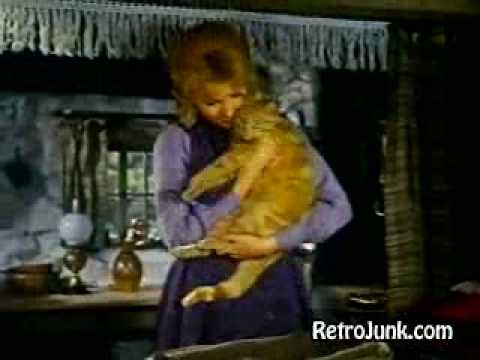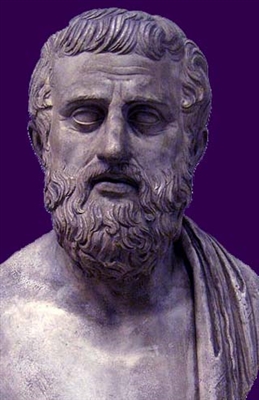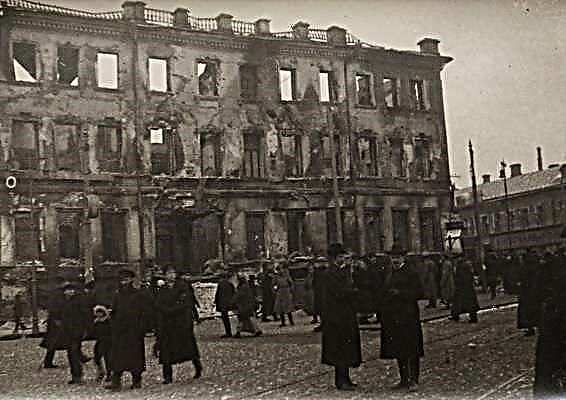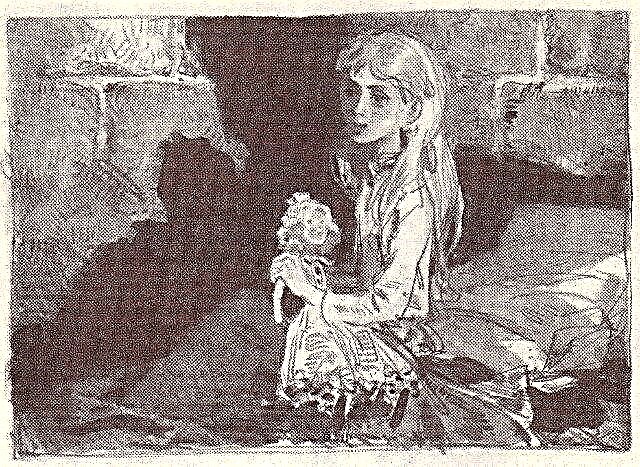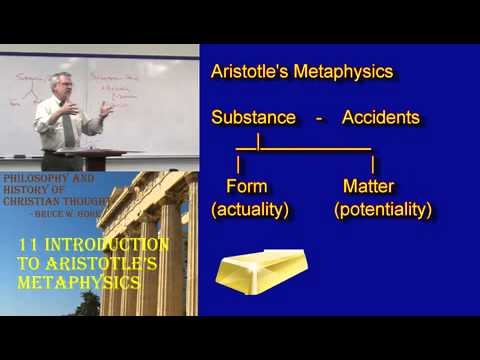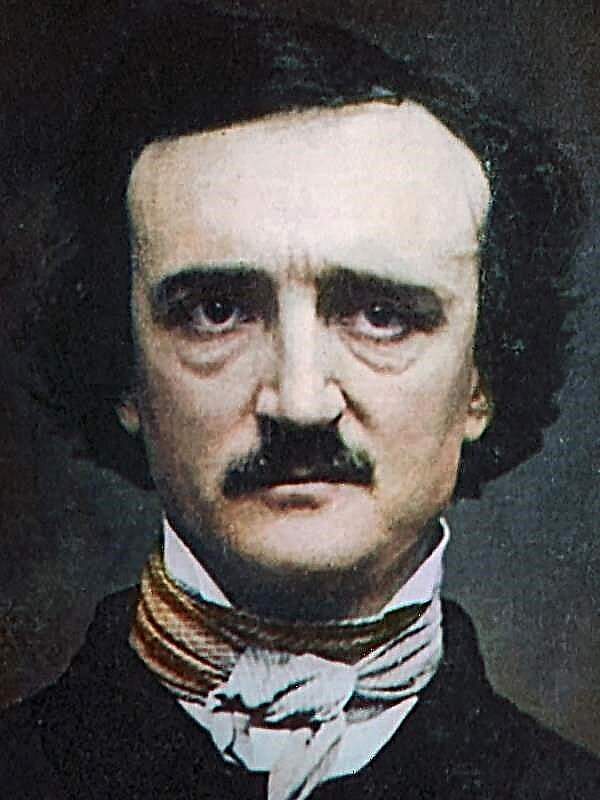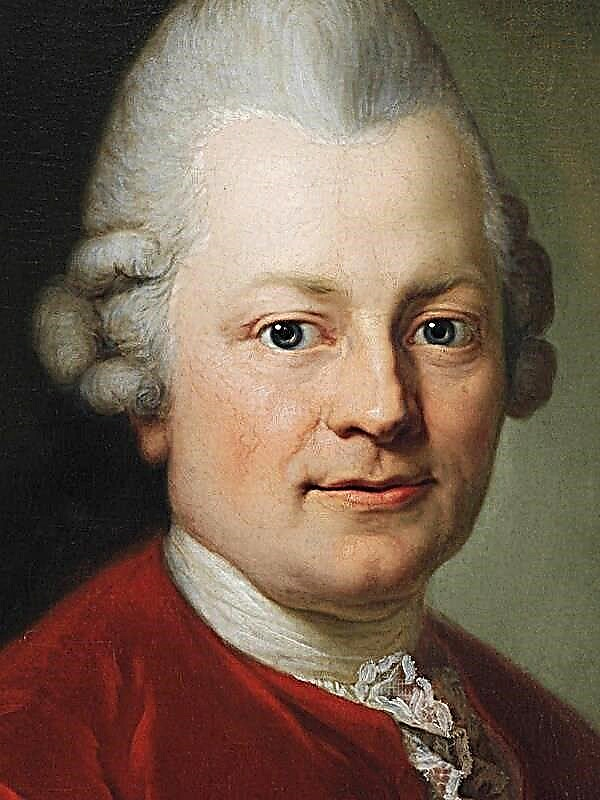The central character of the novel, Diderich Gesling, was born into a German family of the middle bourgeois, the owner of a paper mill in the city of Netzig. As a child, he often hurt, was afraid of everything and everyone, especially his father. His mother, Frau Gesling, also lives in fear of angering her husband. The father accuses the wife of mentally crippling her son, and develops deceit and dreaminess in him. In the gymnasium, Diderich tries not to stand out, but dominates the younger sisters Emmy and Magda at home, forcing them to write dictations daily. After the gymnasium, Diderich, by his father’s decision, leaves for Berlin to continue his studies at the university at the Faculty of Chemistry.
In Berlin, a young man feels very lonely, a big city scares him. Only four months later, he dares to go to Mr. Geppel, the owner of a pulp mill, with which his father has business relations. There he meets Agnes, the daughter of a manufacturer. But Diderich’s romantic enthusiasm breaks up at the very first hurdle. His rival, student Malman, who rents a room from Heppel, confidently seeks the girl's attention. The impudent Malman not only makes gifts to Agnes, but also takes the money from Diderich. The young and still timid Diderich does not dare to compete with Malman and no longer appears in the house at Heppel.
Once, going to the pharmacy, Diderich meets his school friend Gottlieb there, who lures him to the student corporation "Novotevtoniya", where the cult of beer and false knighthood thrives, where various sorts of reactionary nationalistic ideas are used. Diderich is proud to be participating in this, in his opinion, "school of courage and idealism." Having received a letter from home with a message about a serious illness of his father, he immediately returned to Netzig. He is shocked by the death of his father, but at the same time intoxicated with a sense of "crazy" freedom. The share of Diderich’s inheritance is small, but with skillful management of the factory you can live well. However, the young man returns to Berlin again, explaining to his mother that he still needs to go to the army for one year. In the army, Diderich learns the hardships of drill and ill-treatment, but at the same time he also experiences the joy of self-abasement, reminiscent of the spirit of Novoteutonia. Nevertheless, after several months of service, he imitates a leg injury and is exempted from drill training.
Returning to Berlin, Diderich revels in talk of German greatness. In February 1892, he witnesses a demonstration of the unemployed and is delighted to see the young Kaiser Wilhelm prancing through the city streets and demonstrating the power of power for the first time. Intoxicated by loyal feelings, Gesling rushes towards him, but on the run falls right into the puddle, causing a cheerful laugh of the Kaiser.
The meeting of Diderich and Agnes, after many months of separation, revives him with a new force of attraction to her. Their romantic relationship grows into physical intimacy. Diderich reflects on a possible marriage. But his constant vacillations and fears are connected with the fact that things are going badly at the factory of Mr. Geppel, that Agnes, in his opinion, is trying too hard to fall in love with him. He fancies a conspiracy of father and daughter, and he moves to another apartment so that no one will find him there. However, two weeks later, his father Agnes, who had been searching for him, knocks on the door to Diderich and leads a frank conversation with him. Diderich coldly explains that he has no moral right in front of his unborn children to marry a girl who, before the wedding, lost her innocence.
Returning to Netzig, on the train, Gesling met a young lady named Gusta Daimchen, but when she found out that she was already engaged to Wolfgang Buk, the youngest son of the head of the city government, he was somewhat upset. Gesling, who received a diploma, is now often called a “doctor”, and he is determined to win a place in the sun, “crush competitors”. To do this, he immediately takes a number of steps: he begins to change orders at the factory, tightens discipline, brings in new equipment. In addition, he hastily makes visits to the most influential people in the city: Mr. Buk, a convinced liberal, participant in the revolutionary events of 1848, and the burgomaster, whose main principle is the cult of power. The conversations of Mr. Yadasson from the prosecutor's office, who considers Buk and his son-in-law Lauer as seditious, are first taken by Gesling with caution, but then he draws him into his orbit, mainly with the help of sayings calling for the monarch’s sovereignty.
In the city, there is a lively discussion about the case when a young worker was killed by a shot with a rifle. Gesling, Yadasson, pastor Zillich condemn all attempts by the workers to change anything and demand that all reins of government be transferred to the bourgeoisie. Lauer objects to them, arguing that the bourgeoisie cannot be the dominant caste, because it cannot even boast of a purity of race - in princely families, including in German, everywhere there is an admixture of Jewish blood. He hints that the Kaiser family is also no exception to the rule. The furious Gesling, instigated by Yadasson, turns to the prosecutor's office with a complaint against Lauer for his "seditious speeches." Gesling is summoned to the court as the main witness for the prosecution. The statements by Wolfgang Buck's lawyer, prosecutor Yadasson, the chairman, investigator and other witnesses alternately change the chances of prosecution and defense. Gesling has to get out and bustle - it is not known who will have the final word. Towards the end of the process, Gesling is convinced that those with more dexterity and power are winning. And he, quickly finding his way, turns his final word into a rally, calling for the fulfillment of any will of Kaiser Wilhelm II. The court sentenced Lauer to six months in prison. Gesling, on the recommendation of the regional president von Wulkoff himself, receives veterans of the city into the Honorary Ferein.
Gesling's second victory takes place on the "personal front" - he marries Guste Daimhen and receives a million and a half marks as a dowry. During a honeymoon in Zurich, Diderich learns from newspapers that William II is going to Rome on a visit to King I of Italy. Gesling rushes there with his young wife there, and without missing a single day, watches for hours on the streets of Rome, waiting for the Kaiser’s crew. Seeing the monarch, he hoarsely shouts: “Long live the Kaiser!” He became so familiar with police and journalists that they already perceive him as an official of the Kaiser’s bodyguard, ready to protect the monarch with his body. And then one day a picture appears in an Italian newspaper that captures the Kaiser and Gesling in one shot. Gesling overwhelmed with happiness and pride, and he, returning to Netzig, hastily organized a "Kaiser party". In order to achieve political leadership, and at the same time strengthen his financial and entrepreneurial positions, he enters into transactions with all the influential people of the city. With socialist leader Fischer, he agrees that the socialists will support Gesling’s so expensive idea of creating a monument to William I, the grandfather of the modern Kaiser, in Netzig. In exchange, the Kaiser Party promises to support Fischer’s candidacy in the Reichstag elections. When Gesling encounters obstacles, he is sure that the "cunning" old man Buk adjusts them. And Gesling does not stop at nothing to sweep Buka out of his path: he uses blackmail, incitement and the crowd’s love for scandals. He accuses Buck and his friends of public money fraud.
In the newspapers, the name of Diderich Gesling appears more and more, honor and wealth elevate him in the eyes of the townspeople, he is elected chairman of the committee for the construction of the monument to the Kaiser. On the opening day of the monument, Dr. Gesling delivers a sublime speech about the German Nation and its chosenness. But suddenly a terrible thunderstorm begins with heavy rain and strong gusts of wind. A real flood makes the speaker hide under the podium with which he has just spoken. Having sat there, he decides to return home, enters the house to Buk on the way and finds out that he is near death: the life shocks of recent months completely undermined his health. Gesling quietly sneaks into the room where the dying old man is surrounded by his relatives, and quietly clings to the wall. The beech looks around for the last time and, seeing Gesling, jerks its head in dismay. Relatives are seized by excitement, and one of them exclaims: “He saw something! He saw the devil! ” Diderich Gesling is immediately imperceptibly hiding.

